- Home
- Неизвестный
Mistaken Identity (A Jules Poiret Mystery Book 26) Page 2
Mistaken Identity (A Jules Poiret Mystery Book 26) Read online
Page 2
“Good morning, Spencer,” he said. “Like a good neighbor I’m watching sleeplessly over my sheep. I’m going to call on the butcher.”
Spencer looked at the ground, and said, “The butcher is out. He is over at Rackheath, buying mutton.”
“I know,” answered the other with silent laughter, “that is why I’m calling at his flat.”
“Justin,” said the baker, with his eye on a newspaper in the road, “are you ever afraid of death?”
“What do you mean?” asked Metcalfe. “Is your hobby misanthropy?”
“I mean,” said Spencer, without looking up, “do you ever think that some husband will come after you?”
“I beg your pardon,” said Metcalfe. “I didn’t know your hobby was gossip.”
“I know what your hobby is,” retorted the other man, stung in his pride. “But if you don’t fear God, you have good reason to fear man.”
His friend raised his eyebrows politely. “Fear man?” he said.
“Whitney the butcher is the strongest man for miles round,” said the baker sternly. “I know you are no weakling, but he could throw you all the way to London.”
This struck home, being true. For a moment he stood with the hairy sneer on his face. But in an instant Metcalfe had recovered his good humor and laughed, showing two ferret-like front teeth under his drooping moustache. “In that case, my dear Spencer,” he said quite carelessly, “it was wise for the last of the Metcalfes to come out in armor.”
He took off his grey homburg hat.
“It was the first hat to hand,” explained his friend airily. “The nearest hat, and the nearest woman.”
“The butcher will be back soon,” said Spencer quietly.
And with that he turned and went into the bakery with bowed head, shaking his head like one who wishes to be rid of an evil thought. He was anxious to forget such grossness in the cool twilight of his bakery, but on that morning it was fated that his work should be halted by small incidents. Not long after he had entered the bakery, hitherto never disturbed till the shop opened at nine, he saw a figure rapping at his door. When the baker saw him he stood still with surprise. For the early customer was none other than the landlord of the pub, Mr. Sims, who together with his wife, Rita, ran the pub on the other side of the street. He was the father of the butcher’s wife next door.
Spencer Haye stood rooted to the spot long enough to see the publican walk away, when no one opened the door, and even to see his drunk friend greet him with a sort of friendly jocularity. This sunlit picture sent the baker finally to his baking ovens and new thoughts. There he began to think less about the publican. He began to think less of his friend, pacing like a lion from oven to oven to bake the bread and pastries for that day’s customers. He sank deeper and deeper into those sweet colors of pink blossoms and blue sky.
In this place half an hour afterwards he was found by Tyler, the postman, who had been sent for him. He opened the door immediately, for he knew that the postman’s bewildered appearance meant he had no small matter to tell him.
“What is it?” asked Spencer rather stiffly.
The other man spoke in a tone that, coming from him, was quite startlingly friendly, and even, as it were, sympathetic.
“You must excuse me,” he said, “but we didn’t think it right not to let you know at once. I’m afraid a rather dreadful thing has happened. Your friend…”
Spencer clenched his hands. “What has he done now?” he asked, sighing.
“Well,” said the postman, coughing, “I’m afraid he’s done nothing. I’m afraid he’s done for. You had really better come down with me.”
The baker followed the postman out onto the street. Haye saw the tragedy in one glance. In front of the butcher’s store were standing five men. They included a doctor, a policeman, and a small, rotund man from London, whose taste for fine food had brought him to the baker’s shop many times. The policeman was speaking to the butcher’s wife, Felicity very rapidly, as she, a magnificent woman with red-brown hair, was sobbing blindly on the bench in front of the pub. In front of the butcher’s store lay a man in evening dress, flat on his face. Spencer could see that it was his friend Metcalfe. His head had an aura of blood.
Spencer Haye took one look, and ran to the man on the ground. The doctor, who was also his family physician, greeted him, but he took no notice. He could only stammer out, “My friend is dead.” There was a solemn silence, and then the postman, the most outspoken man present, answered, “Horrible?” he said. “Yes, but not much of a mystery.”
“What do you mean?” asked Spencer, pale.
“It’s plain enough,” answered Tyler. “There is only one man for forty miles round that could have struck such a blow as he’s the man that had most reason to.”
“We should not spread gossip or accusations,” put in the doctor, a tall, bearded man, rather nervously, “but I can corroborate what Mr. Tyler says about the nature of the blow. Mr. Tyler says that only one man in this district could have done it. I should say myself that only a few could have done it.”
A shudder went through the slight figure of the baker. “I don’t understand,” he stammered.
“Mr. Haye,” said the doctor in a low voice, “it’s inadequate to say that the skull was smashed to bits like an eggshell. It was the hand of a giant.” He was silent for a moment, looking grimly through his glasses, then he added, “The thing has one advantage. It clears most people of suspicion at once.”
“That’s what I say,” repeated the postman obstinately. “There’s only one man that could have done it. Where’s the butcher?”
“He’s over in Rackheath,” said the baker.
“More likely in Dover looking for a way out of the country,” muttered the postman.
“No, he’s in neither of those places,” said the doctor, looking at the funny looking little man with the exquisite clothes who had joined the group. “As a matter of fact, he’s coming up the road at this moment.”
Everyone turned round and peered at the end of the street, along which was indeed walking, at his own stride and with a brace of pheasants on his shoulder and a shotgun on his arm, Whitney the butcher. He was walking and talking quietly with two other men, and was as usual cheerful, and seemed quite at his ease.
“My God!” cried the postman. “There’s the weapon he did it with.”
“No,” said the policeman, a sensible-looking man with a sandy moustache, speaking for the first time. “There’s the axe he did it with over there by the wall. We have left it and the body exactly as they are.”
All glanced round and the little man went across and looked down in silence at the tool where it lay. It was a heavy axe, and on the iron edge of it were blood and hair.
After a silence the little man spoke without looking up, and there was an excited tone to his voice. “Monsieur Tyler, he was incorrect,” he said, “in saying that the victim, he was shot, as the axe, it shows it is the weapon used in the murder.”
“Oh, never mind that,” cried Tyler, in a fever. “What are we to do with Whitney?”
“Leave him alone,” said the policeman. “He’s coming here of himself. I know those two men with him. They are good fellows from Rackheath.”
Even as he spoke the butcher stopped in front of his shop. He stood there quite still, and the shotgun fell from his hand. The policeman, who had preserved impenetrable propriety, immediately went up to him.
“I won’t ask you, Mr. Whitney,” he said, “whether you know anything about what has happened here. I hope you don’t know, and that you will be able to prove it. I must, however, arrest you for the murder of Justin Metcalfe.”
“You’re not bound to say anything,” said the postman in officious excitement. “They’ve got to prove everything. They haven’t proved yet that it’s Metcalfe, with the head all smashed up like that.”
“That won’t wash,” said the doctor. “I was Metcalfe’s doctor, and I knew his body better than he did. That’s Metcalf
e right enough.”
As he glanced at the corpse on the ground the eyes of the motionless butcher followed them and rested there also.
“Is Metcalfe dead?” asked the butcher quite calmly.
“Don’t say anything! Oh, don’t say anything,” cried the postman, moving around in an ecstasy of admiration of the English legal system. For no man is such a legalist as a postman.
“When did this dog die for his sins?” asked the butcher.
“Moderate your language,” said the doctor.
“Moderate your language, and I’ll moderate mine. When did he die?”
“I saw him alive at five o’clock this morning,” stammered Spencer Haye.
“God is good,” said the butcher. “Policeman, I’ve not the slightest objection to being arrested. It is you who may object to arresting me. I don’t mind leaving the court without a stain on my good name. You might mind perhaps leaving the court with a bad set-back in your career.”
The solid policeman for the first time looked at the butcher with a lively eye, as did everybody else, except the little, strange man, who was still looking down at the big axe that had dealt the dreadful blow.
“There are two men standing here with me,” went on the butcher, “good tradesmen from Rackheath whom you all know, who will swear that they saw me from before four o’clock till daybreak and long after in the woods where we were hunting. If I were a bad man, Policeman, I would let you walk on to your downfall. But I feel bound to give you your chance, and ask you whether you would like to hear my alibi now or in court.”
The policeman seemed for the first time disturbed, and said, “Of course I should be glad to clear you altogether now.”
The butcher looked to his two friends from Rackheath, who were indeed friends of nearly everyone present. Each of them said a few words which no one ever thought of disbelieving. When they had spoken, the innocence of Whitney stood up as solid as the high buildings around them.
One of those silences struck the group, which are worse than dull conversation. In order to make conversation, the baker said to his new customer,
“You seem very much interested in that axe, Mr. Poiret.”
“Oui, mon ami,” said Poiret. “Why is the axe so big?”
The doctor turned to him.
“By George, that’s true,” he cried. “Who would use a huge axe, if a smaller one could do the job just as good or even better as you don’t have to fear not being able to lift it over your head?” Then he lowered his voice and said, “It’s a question of lifting power in the shoulders. A mean woman could commit ten murders with a light axe and never break a sweat. She could not kill a mouse with a heavy one.”
The baker was staring at him with a sort of horror, while Poiret listened with his head a little on one side, interested and attentive. The doctor went on with more emphasis, “Why do these idiots always assume that the only person who hates the wife’s lover is the wife’s husband? Nine times out of ten the person who most hates the wife’s lover is the wife.”
He made a gesture towards the woman on the bench. She had lifted her head at last and the tears were drying on her face. But the eyes were fixed on the corpse with a glare that had in it something of love.
The baker made a limp gesture as if waving away all desire to know, but the postman, looking at Poiret, who was dusting off his sleeve some dust, said to the doctor, “You are like many doctors, but your science is impossible. Look at that woman. Look at her arms.”
Silence held them all up again, and then the doctor said rather sulkily, “Well, if the husband and the wife didn’t do it, who could it have been?”
With that the trembling hands of Spencer Haye went up to his head and seemed to clutch his receding hair. After an instant they dropped, and he cried, “That was the word I wanted. You have said the word.”
“Yes,” said the doctor. “Well?”
“Well,” said the baker, “there is another man, who might want to kill him. The wife’s father.”
The rest stared at him.
“Why would the father get involved with his daughter’s affairs?” asked the postman.
“I mean,” said the baker in a febrile and feminine agitation, “Metcalfe was his landlord and we all know he owed him a lot of money.”
“Are you denouncing him?” inquired the doctor.
Spencer answered with a wild but curiously happy smile, “When I was in the bakery this morning Sims knocked on my door, very like a lunatic would knock after killing a man. When I last saw Sims he was with Metcalfe and he was mocking him.”
“By Jove,” cried the doctor, “that is talking at last.”
The baker was almost trembling with the excitement of his own glimpse of the truth. “Don’t you see?” he cried feverishly. “This explains both the riddles. The two riddles are the huge axe and the tremendous blow. The butcher might have struck the blow, but would not have chosen the huge axe. His wife would have chosen the little axe, but she could not have struck the enormous blow. But an angry, desperate debtor might have done both.”
The doctor drew a deep breath and then said, “By golly, I believe you’ve got it.”
Poiret fixed his eyes on the speaker so long and steadily as to prove that his ox-like eyes were as significant as his huge moustache. When silence had fallen he said with marked respect, “Monsieur Haye, yours is the only the theory yet propounded which holds the water every way and it is unassailable. But Poiret, he believes that you deserve to be told by himself, that it is not the true one.” And with that the odd little man walked away and stared again at the huge axe.
“That fellow seems to know more than he ought to,” whispered the doctor peevishly to Spencer. “Those frogs are deucedly sly.”
“No, no,” said Haye, with a sort of fanaticism. “It was the publican. It was Sims.”
The group of the baker and the doctor had fallen away from the more official group containing the policeman and the man he had arrested. Now, however, that their own party had broken up, they heard voices from the others.
Poiret looked up quietly and then looked down again as he heard the butcher say in a loud voice, “I hope I’ve convinced you. I couldn’t have flung my axe bang here from Rackheath. My axe hasn’t got wings that it should come flying half a mile over hedges and fields and these high buildings surrounding us.”
The policeman laughed amicably and said, “No, I think you can be considered out of it, though it’s one of the strangest coincidences I ever saw. I can only ask you to give us all the assistance you can in finding the culprit. By George! I suppose you yourself have no guess at the man?”
“I may have a guess,” said the butcher, “but it’s not a man.” Then, seeing the policeman’s eyes turn towards his wife on the bench, he said, “Nor a woman either.”
“What do you mean?” asked the policeman jocularly. “You don’t think birds use axes, do you?”
“I think no thing of flesh held that axe,” said the butcher in a stifled voice. “I think the man died alone.”
Spencer made a sudden forward movement and peered at him with burning eyes.
“Do you mean to say, Whitney,” came the sharp voice of the postman, “that the axe flew up of itself and pummeled the man down?”
“Oh, you gentlemen may stare and snigger,” cried Whitney, “but our vicar tells us every Sunday how the Lord smites the wicked and how he defends the honor of many, and lays the defiler dead. I believe the force in that blow was the force there is in earthquakes, and not the force of a mere mortal.”
“The Good Lord is outside my jurisdiction,” said the policeman with a slight smile.
“You are not outside His,” answered the butcher, and, turning his back, he went into his shop.
The shaken wife was consoled by Poiret, who had an easy and friendly way with him. “Please to take my handkerchief, Madame,” he said. “May Poiret look inside your butcher’s shop? He hears it is one of the finest in England. Poiret, he takes some intere
st in the food,” he added with a winning smile.
Felicity Sims did not smile, for humor was never her strong point. But she nodded rather eagerly, being only too ready to talk to someone not as daft as her husband and the policeman.
“By all means,” she said, “let us go in.” And she led the way into the shop, where her husband was already preparing the pheasants for sale. She looked at her husband and he looked at her and she lifted her head defiantly and said to Poiret, “Let’s go upstairs to our flat for a cup of coffee.”
Poiret assented eagerly. As he left the shop Poiret felt a hand on his shoulder, he turned to behold the angry eyes of the butcher, his face darker yet with suspicion.
“Sir,” said the butcher harshly, “you appear to know some secrets in this business. May I ask if you are going to keep them to yourself?”
“Monsieur,” answered Poiret, smiling quite pleasantly, “there is the very good reason why a man of Poiret’s trade, he should keep things to himself when he is not sure of them, and that also goes when he is sure of them.”
“Well, sir?” said the butcher gloomily, as his wife waited impatiently.
“First, Monsieur,” said Poiret quietly, then he stopped. On the wall hung several axes and knifes. Where the biggest of the axes should hang, there was only a nail in the wall.
The butcher followed his gaze. “We lost that axe some time ago.”
“Bien sur, Monsieur. The police, they may investigate this matter further.”
Poiret tipped his hat and followed the butcher’s wife out of the door. They left the shop and walked to the end of the street, where she entered a hallway with an elevator and a staircase. Both gave access to the flats above the shops, with their front doors overlooking the main street and the fronts of the shops below. They arrived on the sixth floor and walked until they were above the butcher’s store. They entered the flat and Felicity asked Poiret to sit down as she made coffee. Poiret looked around the flat and out of the window next to the front door. He opened the door and looked down on the street below, where an ambulance waited as the attendants were moving the dead man onto a gurney as the policeman stood, axe handle in hand, axe head resting on the ground, looking at the scene. The height made the little man a little queasy.

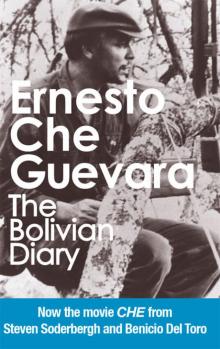 The Bolivian Diary
The Bolivian Diary Caffeine Blues_ Wake Up to the Hidden Dangers of America's #1 Drug ( PDFDrive )
Caffeine Blues_ Wake Up to the Hidden Dangers of America's #1 Drug ( PDFDrive ) The Empty House
The Empty House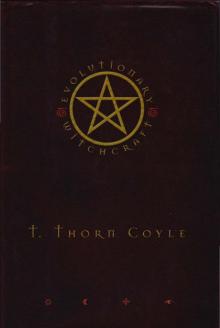 T Thorn Coyle Evolutionary Witchcraft (pdf)
T Thorn Coyle Evolutionary Witchcraft (pdf)![K J Emrick & Kathryn De Winter - [Moonlight Bay Psychic Mystery 01-06] - A Friend in; on the Rocks; Feature Presentation; Manor of; by Chocolate Cake; A-Maze-Ing Death (retail) (epub) Read online](http://freenovelread.comhttps://picture.efrem.net/img/nienyi/k_j_emrick_and_kathryn_de_winter_-_moonlight_bay_psychic_of_by_chocolate_cake_a-maze-ing_death_retail_epub_preview.jpg) K J Emrick & Kathryn De Winter - [Moonlight Bay Psychic Mystery 01-06] - A Friend in; on the Rocks; Feature Presentation; Manor of; by Chocolate Cake; A-Maze-Ing Death (retail) (epub)
K J Emrick & Kathryn De Winter - [Moonlight Bay Psychic Mystery 01-06] - A Friend in; on the Rocks; Feature Presentation; Manor of; by Chocolate Cake; A-Maze-Ing Death (retail) (epub)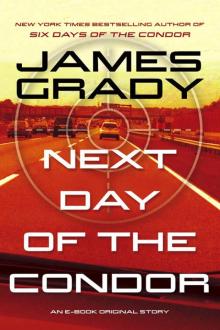 Next Day of the Condor
Next Day of the Condor Onyx
Onyx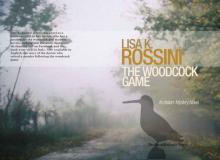 The Woodcock Game: An Italian Mystery Novel
The Woodcock Game: An Italian Mystery Novel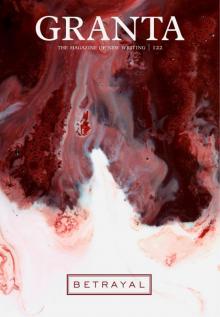 Granta 122: Betrayal (Granta: The Magazine of New Writing)
Granta 122: Betrayal (Granta: The Magazine of New Writing)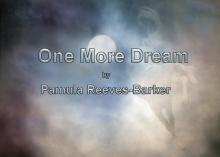 One More Dream
One More Dream Cosa Nostra by Emma Nichols) 16656409 (z-lib.org) (1)-compressed
Cosa Nostra by Emma Nichols) 16656409 (z-lib.org) (1)-compressed Cowboy by J. M. Snyder
Cowboy by J. M. Snyder Colossus
Colossus Star Trek - DS9 011 - Devil In The Sky
Star Trek - DS9 011 - Devil In The Sky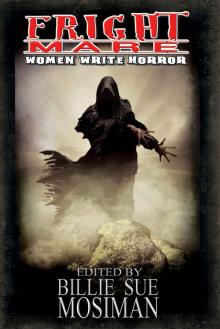 Fright Mare-Women Write Horror
Fright Mare-Women Write Horror The Future Is Japanese
The Future Is Japanese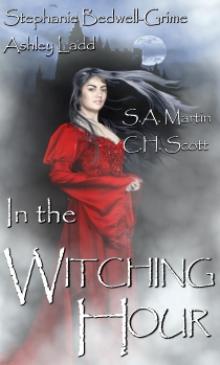 In the Witching Hour
In the Witching Hour Mammoth Books presents Wang's Carpets
Mammoth Books presents Wang's Carpets The Cradle King: The Life of James VI and I, the First Monarch of a United Great Britain
The Cradle King: The Life of James VI and I, the First Monarch of a United Great Britain Stalking Moon
Stalking Moon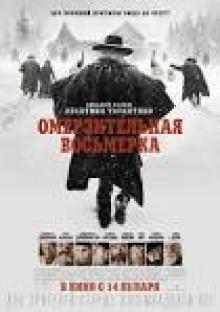 Hostage To The Devil
Hostage To The Devil![Harris, Daisy - Mere Passion [Ocean Shifters 2] (Siren Publishing Classic) Read online](http://i1.bookreadfree.com/i/03/23/harris_daisy_-_mere_passion_ocean_shifters_2_siren_publishing_classic_preview.jpg) Harris, Daisy - Mere Passion [Ocean Shifters 2] (Siren Publishing Classic)
Harris, Daisy - Mere Passion [Ocean Shifters 2] (Siren Publishing Classic) Day, Sunny - Hot in Space (Siren Publishing Ménage and More)
Day, Sunny - Hot in Space (Siren Publishing Ménage and More) Five Books Of The Lives, Heroic Deeds And Sayings Of Gargantua And His Son Pantagruel
Five Books Of The Lives, Heroic Deeds And Sayings Of Gargantua And His Son Pantagruel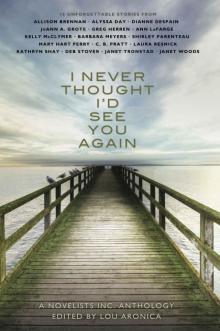 I Never Thought I'd See You Again: A Novelists Inc. Anthology
I Never Thought I'd See You Again: A Novelists Inc. Anthology Billion dollar baby bargain.txt
Billion dollar baby bargain.txt![Chenery, Marisa - Turquoise Eye of Horus [Egyptian Shifters 1] (Siren Publishing Classic) Read online](http://i1.bookreadfree.com/i1/03/26/chenery_marisa_-_turquoise_eye_of_horus_egyptian_shifters_1_siren_publishing_classic_preview.jpg) Chenery, Marisa - Turquoise Eye of Horus [Egyptian Shifters 1] (Siren Publishing Classic)
Chenery, Marisa - Turquoise Eye of Horus [Egyptian Shifters 1] (Siren Publishing Classic) Cat Magic
Cat Magic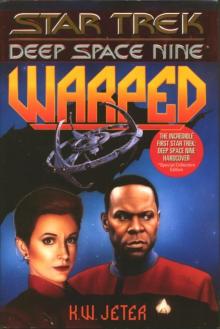 Star Trek - DS9 - Warped
Star Trek - DS9 - Warped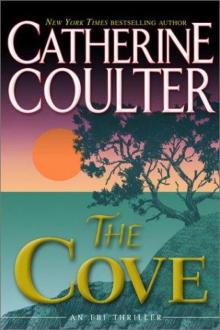 Catherine Coulter - FBI 1 The Cove
Catherine Coulter - FBI 1 The Cove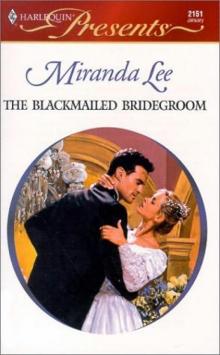 Miranda Lee -The Blackmailed Bridegroom
Miranda Lee -The Blackmailed Bridegroom The Seashell Anthology of Great Poetry
The Seashell Anthology of Great Poetry Dragon Moon
Dragon Moon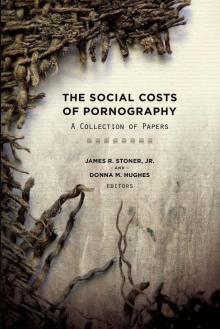 The Social Costs of Pornography: A Collection of Papers
The Social Costs of Pornography: A Collection of Papers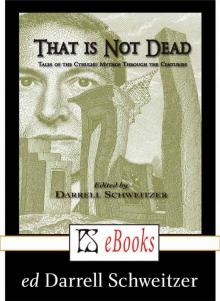 That Is Not Dead
That Is Not Dead Best New Horror: Volume 25 (Mammoth Book of Best New Horror)
Best New Horror: Volume 25 (Mammoth Book of Best New Horror) This Christmas by J. M. Snyder
This Christmas by J. M. Snyder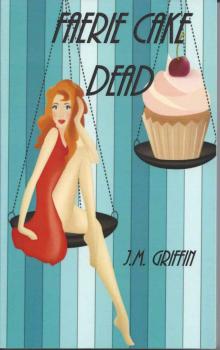 Faerie Cake Dead
Faerie Cake Dead CS-Dante's Twins
CS-Dante's Twins EFD1: Starship Goodwords (EFD Anthology Series from Carrick Publishing)
EFD1: Starship Goodwords (EFD Anthology Series from Carrick Publishing)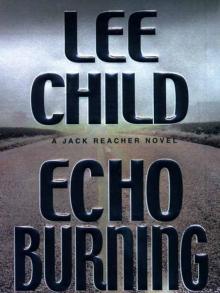 Echo Burning by Lee Child
Echo Burning by Lee Child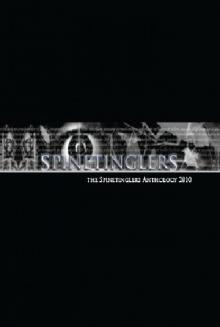 The Spinetinglers Anthology 2010
The Spinetinglers Anthology 2010 Wild Hearts
Wild Hearts Violet Winspear - Sinner ...
Violet Winspear - Sinner ...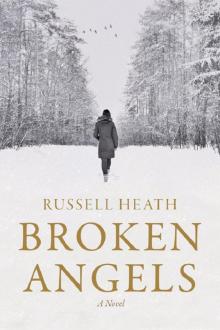 Broken Angels
Broken Angels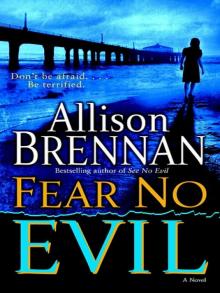 FearNoEvil
FearNoEvil![Santiago, Lara - Range War Bride [Tasty Treats 11] (Siren Publishing PolyAmour) Read online](http://i1.bookreadfree.com/i1/03/30/santiago_lara_-_range_war_bride_tasty_treats_11_siren_publishing_polyamour_preview.jpg) Santiago, Lara - Range War Bride [Tasty Treats 11] (Siren Publishing PolyAmour)
Santiago, Lara - Range War Bride [Tasty Treats 11] (Siren Publishing PolyAmour) 8 Great Hebrew Short Novels
8 Great Hebrew Short Novels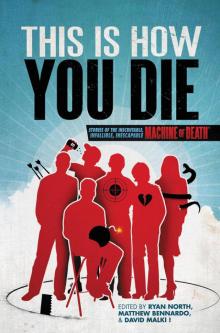 This Is How You Die: Stories of the Inscrutable, Infallible, Inescapable Machine of Death
This Is How You Die: Stories of the Inscrutable, Infallible, Inescapable Machine of Death The Steampowered Globe
The Steampowered Globe While We Wait by J. M. Snyder
While We Wait by J. M. Snyder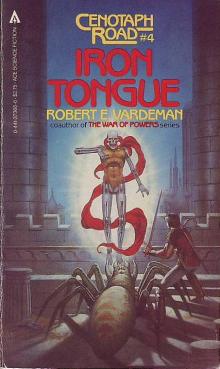 Iron Tongue cr-4
Iron Tongue cr-4![Stieg Larsson [Millennium 02] The Girl Who Played with Fire v5.0 (LIT) Read online](http://i1.bookreadfree.com/i1/03/31/stieg_larsson_millennium_02_the_girl_who_played_with_fire_v5_0_lit_preview.jpg) Stieg Larsson [Millennium 02] The Girl Who Played with Fire v5.0 (LIT)
Stieg Larsson [Millennium 02] The Girl Who Played with Fire v5.0 (LIT)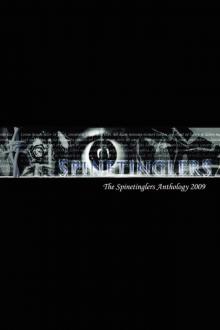 The Spinetinglers Anthology 2009
The Spinetinglers Anthology 2009 Bowles, Jan - Branded by the Texas Rancher (Siren Publishing Classic)
Bowles, Jan - Branded by the Texas Rancher (Siren Publishing Classic) Brown, Berengaria - Vivienne's Vacation (Siren Publishing Ménage and More)
Brown, Berengaria - Vivienne's Vacation (Siren Publishing Ménage and More) Inheritors
Inheritors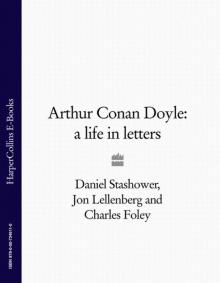 Arthur Conan Doyle: A Life in Letters
Arthur Conan Doyle: A Life in Letters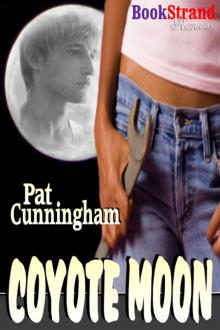 Cunningham, Pat - Coyote Moon (BookStrand Publishing Romance)
Cunningham, Pat - Coyote Moon (BookStrand Publishing Romance)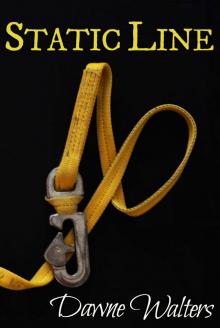 Static Line
Static Line Ghost Mysteries & Sassy Witches (Cozy Mystery Multi-Novel Anthology)
Ghost Mysteries & Sassy Witches (Cozy Mystery Multi-Novel Anthology) Elizabeth Neff Walker - Puppy Love
Elizabeth Neff Walker - Puppy Love Ghosts in the Machine
Ghosts in the Machine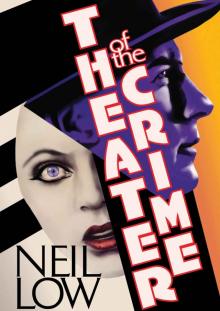 Theater of the Crime (Alan Stewart and Vera Deward Murder Mysteries Book 6)
Theater of the Crime (Alan Stewart and Vera Deward Murder Mysteries Book 6) Red Satin Lips, Book One (The Surrender Series)
Red Satin Lips, Book One (The Surrender Series) Catherine Coulter - FBI 4 The Edge
Catherine Coulter - FBI 4 The Edge StateoftheUnion
StateoftheUnion Fantastic Women: 18 Tales of the Surreal and the Sublime from Tin House
Fantastic Women: 18 Tales of the Surreal and the Sublime from Tin House Sara Wood-Expectant Mistress original
Sara Wood-Expectant Mistress original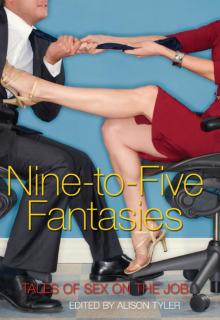 Nine-to-Five Fantasies: Tales of Sex on the Job
Nine-to-Five Fantasies: Tales of Sex on the Job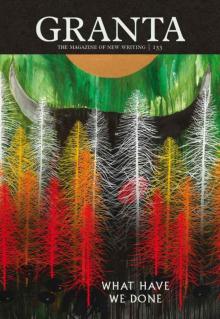 Granta 133
Granta 133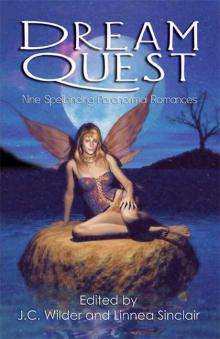 Dream Quest
Dream Quest The Warlock in Spite of Himself wisoh-2
The Warlock in Spite of Himself wisoh-2 Glenn, Stormy - Mating Heat (Siren Publishing Ménage Amour)
Glenn, Stormy - Mating Heat (Siren Publishing Ménage Amour) Davis, Lexie - Toys from Santa (Siren Publishing Classic)
Davis, Lexie - Toys from Santa (Siren Publishing Classic) Once Dead, Twice Shy
Once Dead, Twice Shy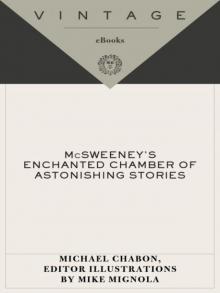 McSweeney's Enchanted Chamber of Astonishing Stories
McSweeney's Enchanted Chamber of Astonishing Stories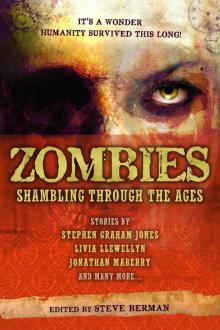 Zombies: Shambling Through the Ages
Zombies: Shambling Through the Ages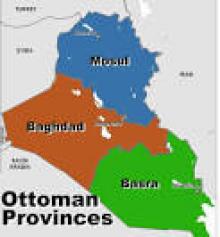 Baghdad Without a Map
Baghdad Without a Map Banshee Cries (the walker papers)
Banshee Cries (the walker papers)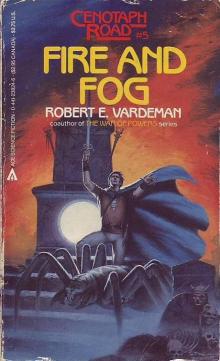 Fire and Fog cr-5
Fire and Fog cr-5 The Twelve Hot Days of Christmas
The Twelve Hot Days of Christmas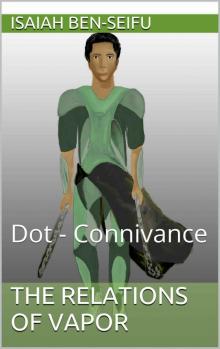 The Relations of Vapor: Dot - Connivance
The Relations of Vapor: Dot - Connivance![Harris, Daisy - Mere Temptation [Ocean Shifters 1] (Siren Publishing Classic) Read online](http://i1.bookreadfree.com/i2/04/11/harris_daisy_-_mere_temptation_ocean_shifters_1_siren_publishing_classic_preview.jpg) Harris, Daisy - Mere Temptation [Ocean Shifters 1] (Siren Publishing Classic)
Harris, Daisy - Mere Temptation [Ocean Shifters 1] (Siren Publishing Classic)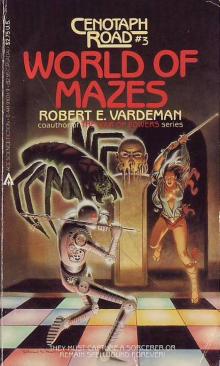 World of Mazes cr-3
World of Mazes cr-3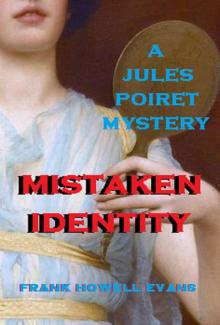 Mistaken Identity (A Jules Poiret Mystery Book 26)
Mistaken Identity (A Jules Poiret Mystery Book 26)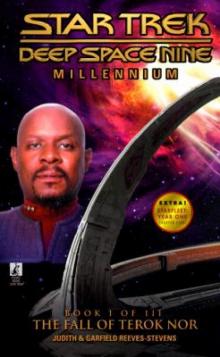 Star Trek - DS9 - Fall of Terok Nor
Star Trek - DS9 - Fall of Terok Nor Not Like I'm Jealous or Anything: The Jealousy Book (Ruby Oliver)
Not Like I'm Jealous or Anything: The Jealousy Book (Ruby Oliver) Skaterboy by J. M. Snyder
Skaterboy by J. M. Snyder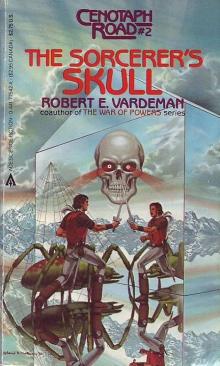 The Sorcerer_s Skull cr-2
The Sorcerer_s Skull cr-2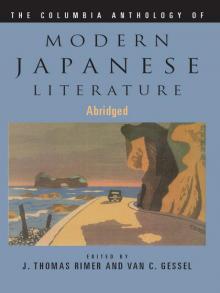 The Columbia Anthology of Modern Japanese Literature (Modern Asian Literature Series)
The Columbia Anthology of Modern Japanese Literature (Modern Asian Literature Series) New Erotica 5
New Erotica 5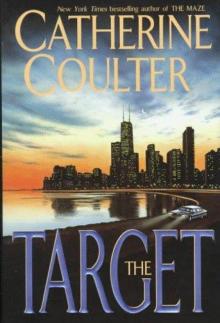 Catherine Coulter - FBI 3 The Target
Catherine Coulter - FBI 3 The Target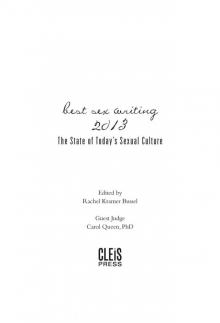 Best Sex Writing 2013: The State of Today's Sexual Culture
Best Sex Writing 2013: The State of Today's Sexual Culture Factoring Humanity
Factoring Humanity Huia Short Stories 11
Huia Short Stories 11 Call of the Wilds
Call of the Wilds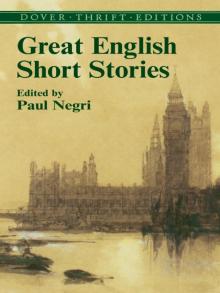 Great English Short Stories (Dover Thrift Editions)
Great English Short Stories (Dover Thrift Editions)![Ramagos, Tonya - Logan's Lessons [Sunset Cowboys 2] (Siren Publishing Classic) Read online](http://i1.bookreadfree.com/i2/04/10/ramagos_tonya_-_logans_lessons_sunset_cowboys_2_siren_publishing_classic_preview.jpg) Ramagos, Tonya - Logan's Lessons [Sunset Cowboys 2] (Siren Publishing Classic)
Ramagos, Tonya - Logan's Lessons [Sunset Cowboys 2] (Siren Publishing Classic)![Morgan, Nicole - Sweet Redemption [Sweet Awakenings 1] (Siren Publishing Allure) Read online](http://i1.bookreadfree.com/i2/04/10/morgan_nicole_-_sweet_redemption_sweet_awakenings_1_siren_publishing_allure_preview.jpg) Morgan, Nicole - Sweet Redemption [Sweet Awakenings 1] (Siren Publishing Allure)
Morgan, Nicole - Sweet Redemption [Sweet Awakenings 1] (Siren Publishing Allure)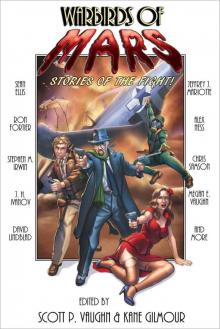 Warbirds of Mars: Stories of the Fight!
Warbirds of Mars: Stories of the Fight!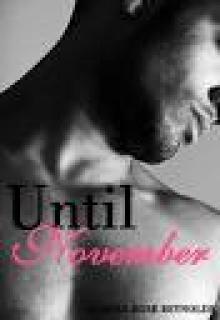 Original Version of Edited Godwin Stories(lit)
Original Version of Edited Godwin Stories(lit) Where The Hell is Boulevard?
Where The Hell is Boulevard?![Chemical [se]X Read online](http://i1.bookreadfree.com/i2/04/13/chemical_sex_preview.jpg) Chemical [se]X
Chemical [se]X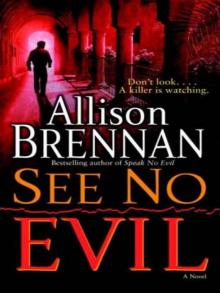 Allison Brennan - See No Evil
Allison Brennan - See No Evil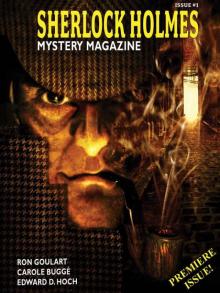 Sherlock Holmes Mystery Magazine #1
Sherlock Holmes Mystery Magazine #1